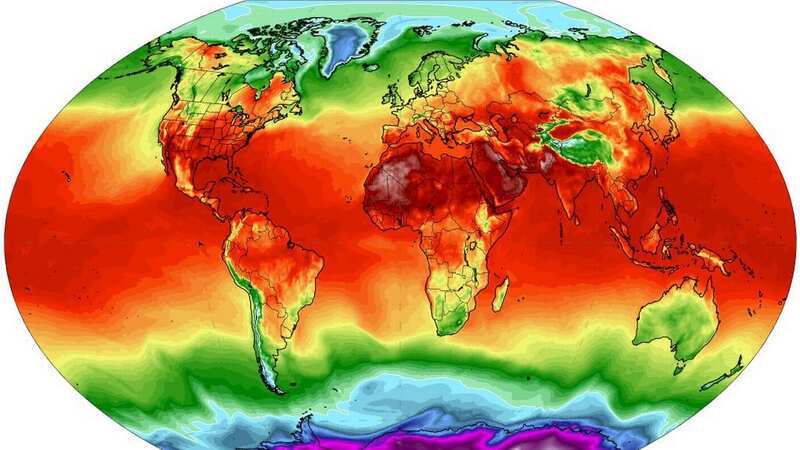Earth experiences hottest day EVER as scientists warn climate now 'terrifying'

Tuesday was the hottest day on Earth since records began.
The global average temperature reached 17.18C according to the University of Maine in the US.
The milestone comes just one day after global average temperatures topped 17C. The previous record of 16.92Ch ad stood since August 14, 2016, the warmest year ever recorded.
Shocked professor Bill McGuire, of University College London, tweeted: “Monday, July 3rd was the hottest day ever recorded on Planet Earth. A record that lasted until … Tuesday, July 4th.”
He added: “Totally unprecedented and terrifying,” he added.
 Protesters planned to kidnap King Charles waxwork and hold it hostage
Protesters planned to kidnap King Charles waxwork and hold it hostage
Paulo Ceppi, a climate scientist at London’s Grantham Institute said: “It hasn’t been this warm since at least 125,000 years ago.”
 A man cools down in Baghdad, Iraq (AHMED JALIL/EPA-EFE/REX/Shutterstock)
A man cools down in Baghdad, Iraq (AHMED JALIL/EPA-EFE/REX/Shutterstock) Shoppers swelter in Kyoto, Japan (AP)
Shoppers swelter in Kyoto, Japan (AP)Scientists believe the heat spike was due to a combination of climate change, the return of the El Niño weather pattern and the start of summer in the northern hemisphere. They warned Tuesday’s temperature record was likely to be the first of many over the coming months.
The modelling system, using data from weather stations, ships, ocean buoys and satellites has in operation since 1979.
Instrument-based global temperature records go back to the mid-19th century, but for temperatures before that, scientists have relied on data captured through evidence left in tree rings and ice cores.
“These data tell us that it hasn’t been this warm since at least 125,000 years ago, which was the previous interglacial,” said Mr Ceppi.
Read more similar news:
Comments:
comments powered by Disqus
































